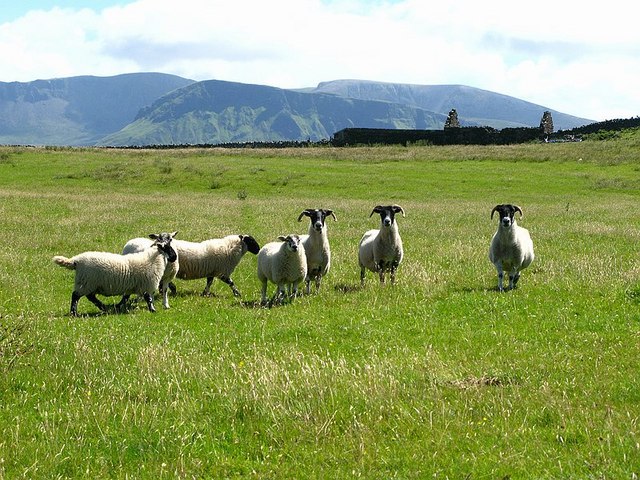Project Lead
Leanne Townsend
Senior Social Scientist, Social, Economic and Geographical Sciences, James Hutton Institute
Contact: leanne.townsend@hutton.ac.uk
Co-investigators
Rowan Ellis, James Hutton Institute
Simon Robinson, Swansea University
Jen Pearson, Swansea University
Supporting Partner(s)
Scottish Crofting Federation, Smallholding Scotland
Challenge
This project aimed to empower and more fairly distribute the opportunities of the digital economy. It planed do this by creating a more inclusive approach for the development of Smart Farming Technologies (SFTs), working with small farms to design prototype technologies. The project will therefore empower small-scale farmers who wish to embrace the opportunities offered by SFTs.
However, they had to deviate significantly from this workplan due to Covid-19. This is due to the fact they were unable to visit this remote rural community in person for a significant length of time, and the members of the community were not experienced/confident with the use of online video conferencing tools, so they could not conduct fieldwork until the later stages. They managed to arrange their fieldwork for the first week of October 2021.
Prototyping
The project was able to develop a working relationship with one crofter and community representative, and therefore decided to concentrate the research and prototyping on in-depth activities with this person, allowing for the collection of very rich and detailed data.
They investigated four potential areas for innovation and developed two prototypes based on the information provided by our participant:
- a low-cost animal tag scanner
- a simple poly tunnel temperature monitor
During our in-person visit the prototypes were demonstrated, trialed on the croft and feedback was directly provided.
Insights
During this project they have learned some important lessons concerning participatory research during a pandemic – especially where this concerns a remote rural community which is not particularly well connected or engaged digitally. We have learned how to adapt our research approach to embrace these challenges. They produced a number of prototypes which are potentially transformational for crofters and other small-scale farmers.
Crofters and small-scale farmers can benefit from digital technologies if these are developed through a co-design process and with the needs of these farmers at the forefront. Useful areas for investigation uncovered so far include those which enable scanning and tracking of sheep tags, and the monitoring and redirecting of water based on temperature sensors.
Future Directions
More research is needed which includes small-scale farmers and crofters in the design of new technologies.

